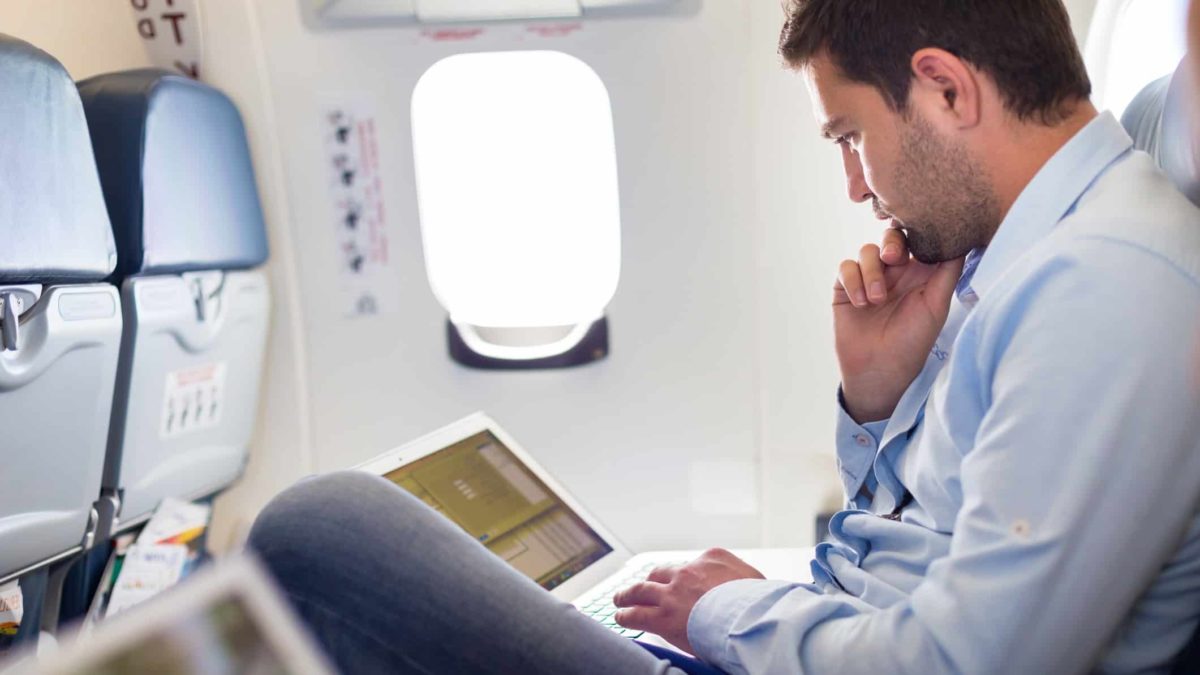Australia has officially reopened and the flying kangaroo is already hitting tarmac across the globe. Does that mean Qantas Airways Limited (ASX: QAN), and its share price, is in for a strong run in the near future?
Well, maybe, but maybe not. Motley Fool Australia analyst Benny Ou sat down with our chief investment officer Scott Phillips to discuss the pros and cons of investing in Qantas earlier this month.
Interested readers can find the pair's conversation in full here and more content from The Motley Fool Australia on our YouTube channel. Or, keep reading for a breakdown of Ou and Phillips' conversation on Qantas.
At the time of writing, the Qantas share price is $5.17, down 2.17%.
The bull view on Qantas shares
After plunging around 60% at the height of the COVID-19 pandemic, the Qantas share price has taken off towards recovery.
As Ou points out, Qantas navigated the pandemic relatively well. It also has a strong brand, is recognisable, and generally liked by customers
Additionally, now the worst of the pandemic is seemingly behind us, Qantas has emerged a leaner organisation than it was before.
Qantas has cut costs and plans to cut more. It has also bolstered its balance sheet with an $802 million land sale.
The airline also has a wild card in its back pocket. The company's Frequent Flyer loyalty program has continued to grow throughout COVID-19. Ou commented:
This division makes money by selling airline loyalty points to your banks, your retail partners, utility providers, and airlines… But what's interesting is that, prior to the pandemic, in 2019 the loyalty division actually generated more in underlying earnings than [Qantas'] international segment…
I think it will likely rebound and become the crown jewel of the business.
On top of that, Ou notes Qantas has a hold of around 70% of Australia's domestic flight capacity and Australians, in general, have more cash to splash post-COVID than they did pre-COVID.
He said Australia's household savings ratio is just below 10%, compared to its pre-pandemic levels of around 5% to 6%.
And finally, in what could be seen as both a good and a bad sign, Qantas' market capitalisation is currently sitting near its record high.
The potential downside to investing in Qantas
Unfortunately, there are several factors Ou pointed to that could weigh on Qantas shares in the future.
Firstly, the airline is subject to a plethora of external factors that could affect its profitability.
COVID-19 is one example. Others include geopolitical risks, terrorism, natural disasters, and – perhaps most notable – oil and fuel prices. Ou stated:
Its financial performance is actually strongly exposed to, but also strongly dictated by, commodity prices, and what you've probably been seeing in the news is rising jet fuel prices or rising Brent oil prices…
I think, if these prices remain elevated… Qantas has to either fork out more and absorb the costs or they might actually charge customers via higher fares, which I think is a very, very difficult balancing act.
There is also emerging competition in Australia's domestic market.
Regional Express Holdings Ltd (ASX: REX) has recently crept into Australia's 'golden triangle', offering daily flights between Melbourne, Sydney, and Brisbane. Meanwhile, budget domestic airline Bonza is planning to launch in 2022.
More competition could put pricing pressure on Qantas.
Speaking of pricing, Qantas doesn't have much power over it. Ou said:
As an airline, [Qantas] has limited to no pricing power. And what i mean by that is that a lot of the pricing and costs are dictated by the airports, as well as the changes in demand from consumer and business travel.
To top off his bearish argument, Ou noted the travel industry could take longer to recover than potentially expected:
In my personal view, I think global aviation will actually take years to fully recover…
Despite the pent-up demand that we're seeing, I think people will likely have a more of a wait-and-see approach and I think the rebuilding of confidence to travel internationally will take some time.
So, will Qantas be a market beater?
Unfortunately, Ou is bearish on the Qantas share price over the next 5 or so years.
He noted that, currently, the Qantas share price seems to be driven by sentiment. Investors appear to be assuming it will increase once travel returns to normal.
Additionally, while the company's share price remains lower than it was pre-COVID, the company has more outstanding shares. Thus, Qantas' market capitalisation has already seemingly recovered.
Finally, Ou looked to Qantas' past performance:
Historically, Qantas has been extremely unpredictable. It's actually lost money [in] 3 out of [the last] 10 ten years on an operating basis…
Over the last 5 years of Qantas in pre-COVID levels, it was actually profitable between 2015 to 2019, and if we take the average earnings then you're getting around $1.3 billion in underlying earnings during that period. If you deduct or adjust your interest and tax you get around $800 million. So, you're kind of looking at around 14 times net profit after tax, which doesn't seem quite attractive…
Overall, I think that it will [lag] the index and I think there are better opportunities out there that have a higher chance of beating the market.
The opinions expressed in this article were Phillips and Ou's as at November 2021 and may change over time.









